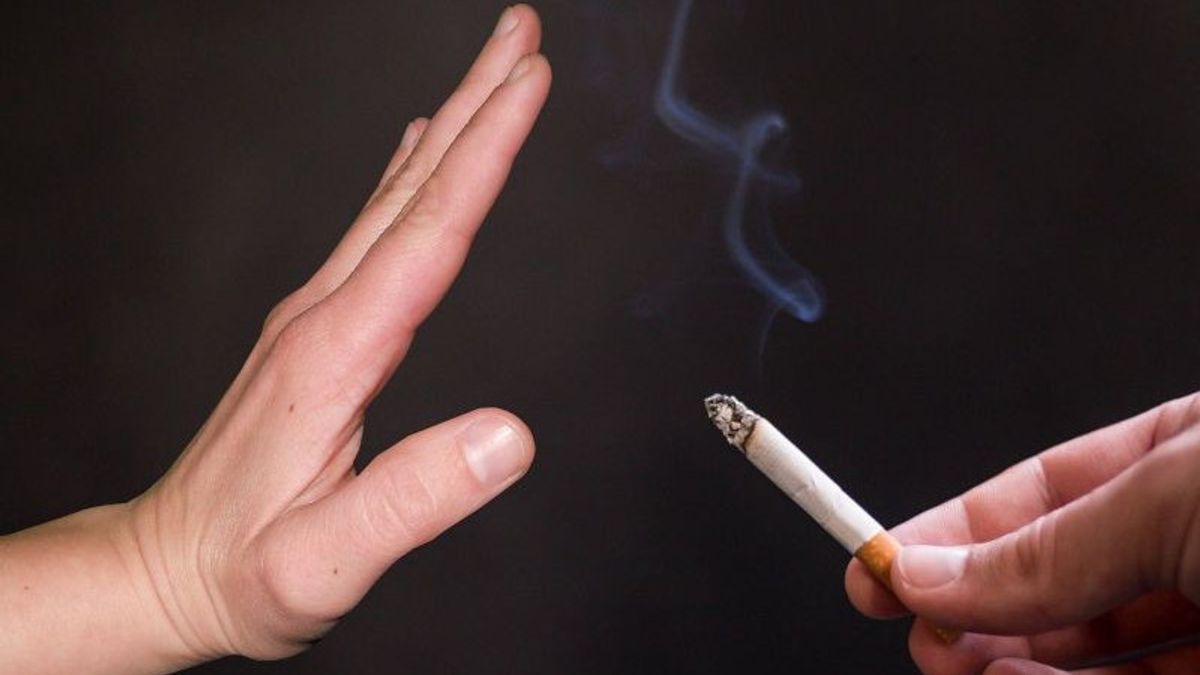JAKARTA - Pulmonary specialist from the Department of Pulmonology and Respirational Medicine, Faculty of Medicine, University of Indonesia (FKUI)-RSUP Friendship, Dr. Sita Laksmi Andarini, Ph.D., Sp.P(K) said the bad effects of new cigarettes will be felt in the next 10 to 20 years.
"The effect is not felt now, but it will be felt in the next 10 to 20 years," said Sita, who is the Head of Foreign Relations of the Indonesian Lung Doctors Association (PDPI) when she met the media in Jakarta, Antara, Wednesday, May 31.
Sita explained that tobacco in cigarettes is dangerous because it contains nicotine which is addictive and tar which is carcinogenic or triggers cancer.
"Nikotin enters (in the body), is smoked, enters the blood circulation and enters the brain, there, there is a receptor, then increases the dopamine. If the dopamine goes up, the person who smokes feels good, comfortable, can sleep. Once the dopamine goes down, immediately he is restless, angry," explained Sita.
"That's why it's difficult for people to smoke because of nicotine dependence," he added.
Sita also said that cigarette smoke contains 4,000 chemicals, with 60 of them being carcinogenic. Therefore, people who smoke have a higher risk of developing lung cancer or leaving the cancer, compared to people who do not smoke.
In Indonesia itself, based on data from the 2021 Global Cancer Observatory (GLOBOCAN), lung cancer is the third most cancer type and the number one cause of death from cancer.
In addition to endangering active smokers, Sita reminds that cigarette smoke is also dangerous for others, whether intentionally or accidentally inhaling it. The cigarette smoke is known as secondhand smoke (SHS).
Furthermore, said Sita, the residual smoke from cigarettes that sticks to the surface such as clothes, sofas, and other objects aka third-hand smoke is also dangerous.
"The risk of active smokers suffering from lung cancer is 13.6 times compared to those who don't smoke, while passive smokers risk four times," said Sita.
For this reason, Sita also recommends stopping smoking as an effort to prevent lung cancer.
"Indeed, this is a very difficult problem. There are clinics that stop smoking, but it's still difficult. So the motivation must be from themselves, because the proof is that during fasting alone you can stop smoking for 12 hours," said Sita.
SEE ALSO:
The English, Chinese, Japanese, Arabic, and French versions are automatically generated by the AI. So there may still be inaccuracies in translating, please always see Indonesian as our main language. (system supported by DigitalSiber.id)
Most Popular Tags
#Prabowo Subianto #New Year #Syria #nataru #NatalPopular
17 Desember 2024, 00:04
17 Desember 2024, 05:00
17 Desember 2024, 04:00


















